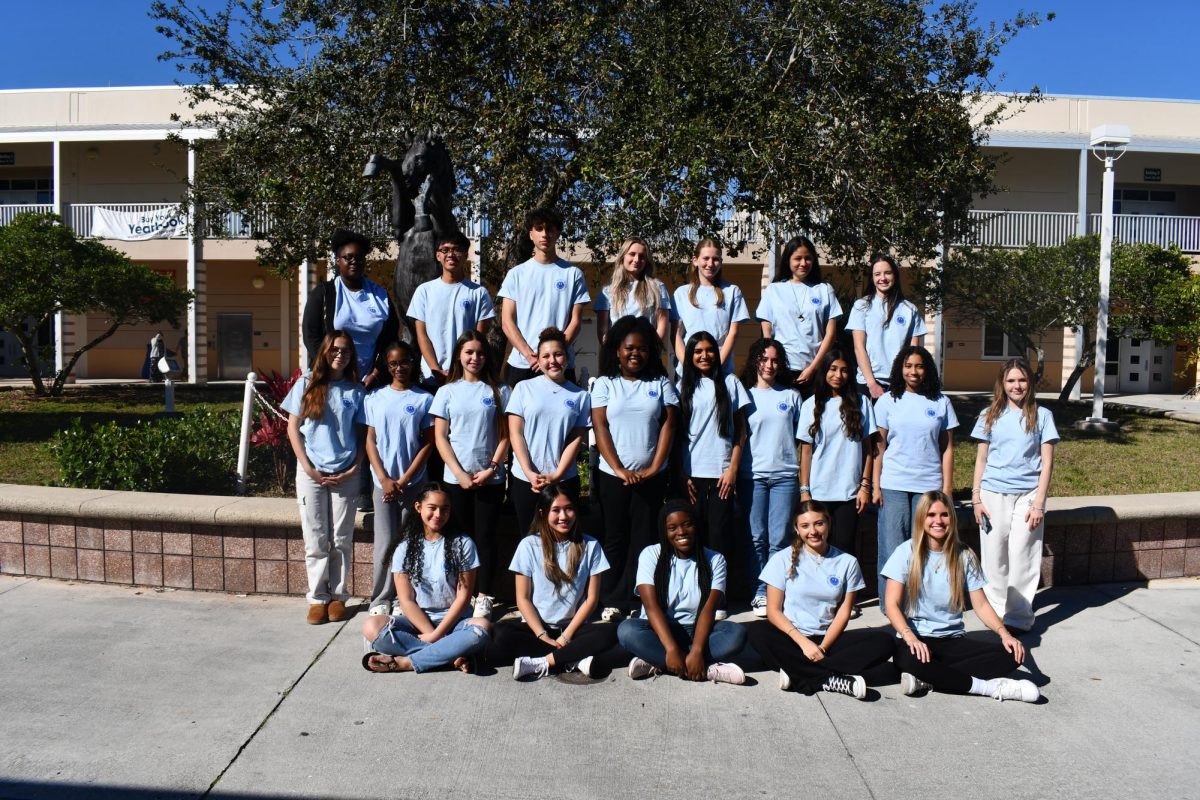Ethical gifts bring holiday hits
December 18, 2020
With the holidays just around the corner, everyone is ready to find that perfect gift for the important people in their lives. Most of the time, however, little thought is put into where and to whom their money is really going.
With so many social movements such as Black Lives Matter, climate strikes, and Juneteenth protests, 2020 has been an enlightening year for many. Among those inspiring topics is “ethical shopping.” Ethical shopping, sometimes referred to as ethical consumption, is a form of activism in which consumers spend their money on ethically-made products, oftentimes coming from small manufacturers and local businesses. With the holidays right around the corner, this is something to keep in mind when purchasing gifts.
The clothing industry is an important example of how companies benefit from unethical ways of producing products. Large clothing manufacturers such as Shien, Zara, Forever 21, and H&M all have benefitted from child labor and sweat shops. Back in August 2016, the Sweden-based clothing giant H&M was found to be purchasing clothing from a Myanmar company that was using children as young as 14 to make their clothes (it should be noted, however, that when H&M discovered this, they ceased doing business with the offending company). Although these stores provide great deals all year around, the consumer’s money is supporting a system that does not fairly pay their workers, if the workers get paid at all. This is what allows the companies to sell their clothing at such a low price.
Another example of unethical production is big corporations like Amazon. Amazon has grown in popularity due to its wide variety of items and ability to shop, pay,and receive a package all without leaving one’s home. Amazon’s popularity has also grown during the COVID-19 pandemic, where people are taking extra precautions by shopping online through the company. However, Amazon has received negative attention due to the treatment of workers and negative impact on the planet. According to Ethicalconsumer.org, Amazon received an E rating, with an A rating being the best and an E rating being the worst, when graded on whether or not garment workers were paid a living wage. On top of this, Amazon has a negative impact on the environment due to the company’s amount of carbon admissions and lack of initiative to strive towards environmental sustainability.
According to therising.co, “Employees have pointed out that the Amazon board rejected a motion to pass a climate proposal. Amazon filed to withhold its emissions numbers in Australia under the guise of protecting company trade secrets. The company has also turned its back on a commitment to double down on renewable energy.”
Amazon was also the subject of several protest movements under #MakeAmazonPay and marches dubbed “Black Friday Amazon” for the mistreatment of and low pay given to the company’s employees especially since, according to Forbes Magazine, the CEO, Jeff Bezos, is worth $182 billion dollars.
With great deals being presented everyday from these companies, it is hard to pass up the offer. However, there are cost efficient ways to shop ethically.
Shopping second hand is an easy and affordable way to get gifts this holiday season. Since thrifting is becoming so popular among students, this is an easy way to become a more ethical consumer. Places like Goodwill, Thrift stores, and Plato’s Closet have a multitude of items to choose from at a cheap price. Online websites such as Depop allow consumers to shop second hand from individual sellers, so leaving the house is not necessary.
“I love Depop because it is a way to thrift from the comfort of your bed,” said sophomore Karly Shannon. “I plan to get a lot of gifts for my friends because of the sales the Depop sellers have during the holiday.”
Another easy way to shop ethically during the holiday is purchasing gifts from small businesses. By supporting these businesses instead of large corporations, the consumer’s money is going right back into the person or business they are shopping from. It allows the consumer to know who the money is going to rather than a huge company.
The online site Etsy allows buyers to shop from many different small businesses and sellers online. Shops sell anything from jewelry, clothing, home goods, candles, and much more.
“Although Etsy can be a little more expensive, it allows you to put money into small businesses rather than large corporations like Walmart,” shared senior Matt Lehman, an active buyer on Etsy. “I purchased a majority of my holiday gifts from Etsy because you can buy personalized gifts that are unique for each person.”
Shopping ethically does not have to empty students wallets, either. Online shops often offer discounts during the holiday and depending on the item, can even offer free shipping. When purchasing in person, students can choose to shop second hand in order to get those money saving prices.
Purchasing from smaller businesses and individual sellers also spread holiday cheer into their lives. Most owners are passionate about what they sell and any attention to their shop can make their day.
“It fills me with joy when someone orders from my shop because I’m genuinely excited for people to enjoy my product,” expressed Ida Alvarado, a junior at Central and a business owner selling earrings on Etsy.
By purchasing from smaller businesses and shopping second hand, buyers can save money while impacting the economy in an ethical way. This holiday season, it is important that buyers consider whose pockets their money is going into in order to bring holiday joy to more than just the gift receiver.
For more information:
https://www.ethicalconsumer.org/how-to-shop-ethically
https://theartofsimple.net/shopping/



